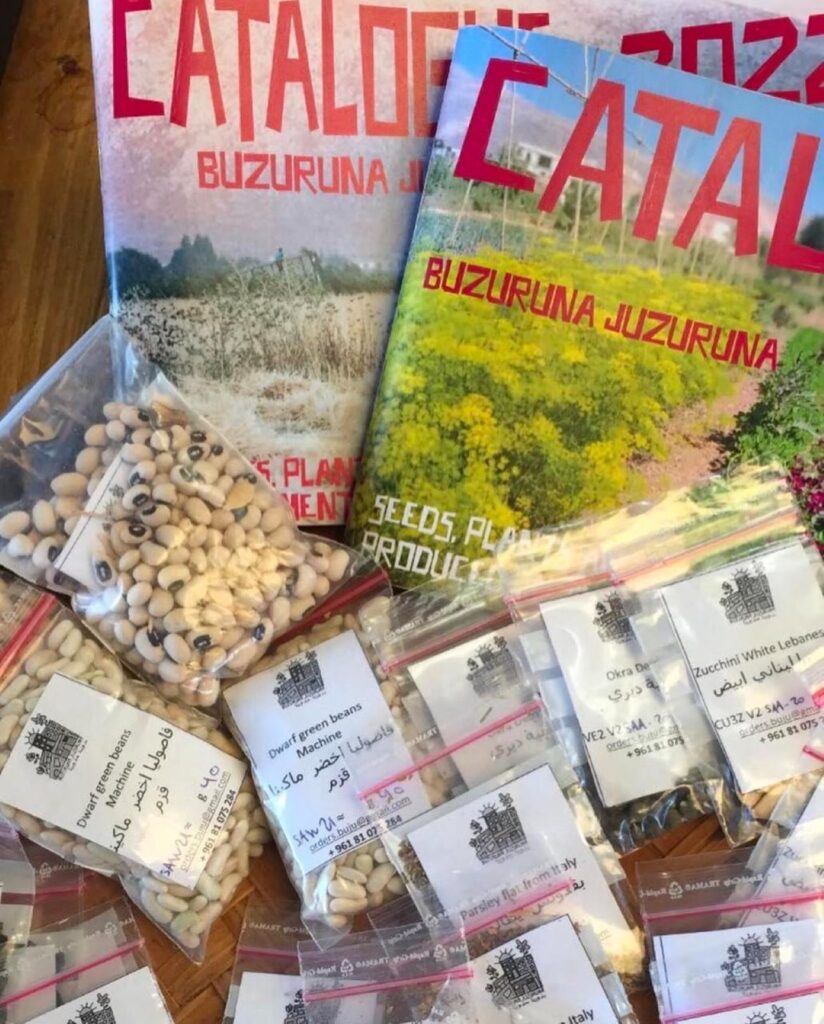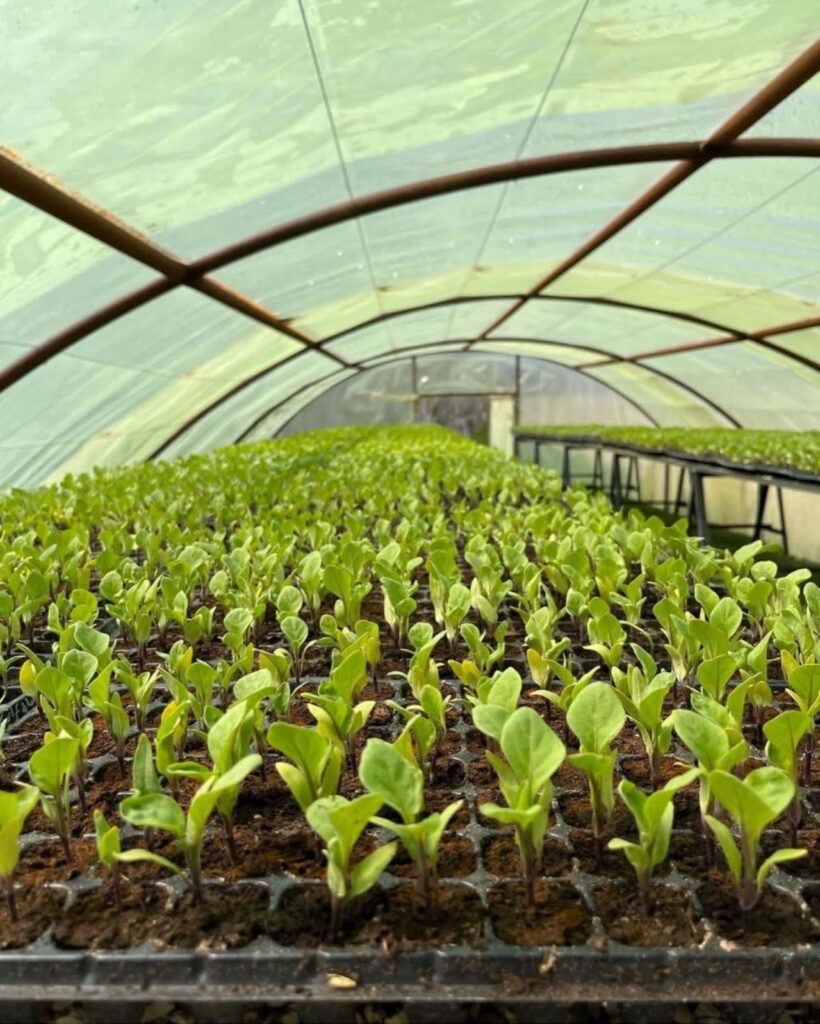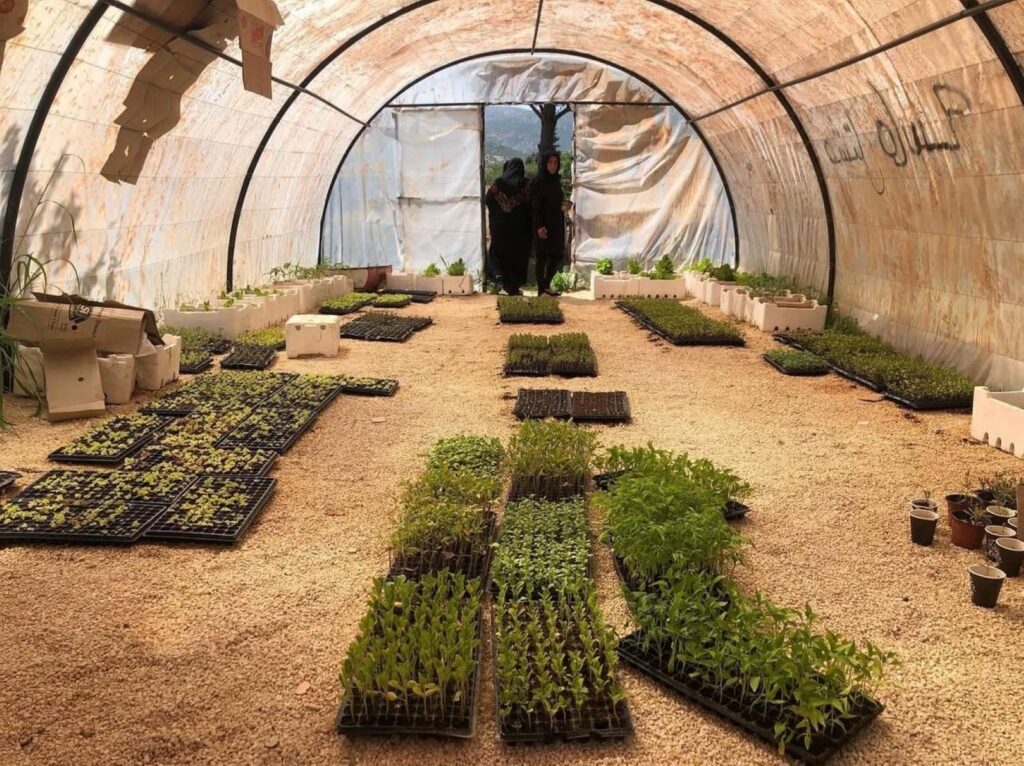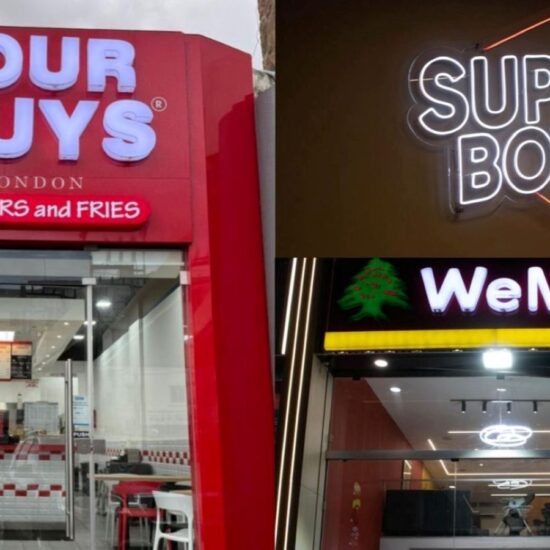
Lebanon’s agricultural sector has been particularly hard-hit, with Israeli bombardment devastating farmlands in the South and the Beqaa, slashing production by more than half. Amid the war, food imports through the Lebanese-Syrian border were almost becoming unfeasible, exacerbating the crisis of food security. In response, initiatives like Buzuruna Juzuruna are working to promote food sovereignty and sustainable agriculture.
Based in the Beqaa, the association focuses on ecological farming, seed preservation, and community-led food production. Through training, workshops, and support for small farmers, Buzuruna Juzuruna plays a crucial role in strengthening local food systems amid growing instability.
Serge Harfouche, a co-founder of the association explained to NOW more about their work amid the war in Lebanon. “After the recent war, it became even clearer that anything that goes on inside the country can directly reflect our ability to access food.”

By Buzuruna Juzuruna
“During the war, having stocked up and prepared in advance allowed us to distribute essential foods like wheat, fava beans, and chickpeas to collective kitchens providing meals for displaced people. This made it clear to us just how crucial our work was,” Serge explained.
To put it into perspective, in one season the association was able to produce enough food to feed around three thousand displaced people weekly, showing the importance of having local seeds preserved as it linked to achieving food sovereignty and function through crises.
Challenges

By Buzuruna Juzuruna
“Lebanon is very vulnerable to any kind of fluctuations in the world as the country is mostly dependent on importing its foods.”
“Secondly, there is a lot less water now due to reduced rainfall so the production in itself is being hindered.” Serge said.
As climate change accelerates and disrupts conventional agricultural systems, trust in Buzuruna Juzuruna and its ecological farming model continues to grow.
Serge considers this an additional strength that reinforces the association’s impact and ability to expand its network of farmers and advocates for sustainable agriculture.
According to Serge, one of the main challenges is access to land and the tendency to rely on conventional farming because it is more profitable. However, conventional agriculture does not truly focus on food production. Juzuruna Buzuruna aims to address this issue at its core by promoting a completely sustainable approach to farming, one that prioritizes food quality over mere commodity production.
Their goal is to demonstrate that it is possible to grow high-quality, nutrient-rich fruits, vegetables, and legumes. In contrast, Serge explains that conventional farming often sacrifices quality, requiring larger quantities to achieve the same nutritional benefits.
“It is a holistic approach to agriculture, where practices are extremely linked and connected to the environment around us.” Explained Serge.
Lebanon’s markets are supplied with a diverse range of vegetables and fruits grown in the South, Beqaa, and North, regions which are key agricultural hubs with vast fields and pastures. The Beqaa Valley alone accounts for over 40 per cent of the country’s cultivated land, along with the Koura and Akkar regions.
A Sustainable Agriculture is the goal
The founders of Buzuruna Juzuruna emphasize the importance of raising awareness and sharing knowledge on maximizing the efficient use of available agricultural resources while protecting and developing them.
Their goal is to ensure a continuous supply of clean, safe food through organic farming and long-term, highly efficient agricultural practices based on sustainability.
“One of the main challenges that runs through the communities of farmers in Lebanon is their addiction to using chemicals and conventional agricultural practices, so to convince them to the natural and sustainable path of agricultural practices can be very complicated,” Serge said.
“We need to show them examples on site, on the farms so they see through their eyes that this practice can successfully work,” He added.
According to Serge this is linked to the fact that there are no sustainable agriculture policies in Lebanon and actually work from the government to push sustainable agriculture.
The association primarily focuses on agriculture but also engages in education and awareness initiatives related to ecological and sustainable farming.
While its core activities are currently based in Saadnayel, in the Beqaa Governorate, its reach extends across Lebanon through training programs, workshops, and support for other agricultural organizations. Additionally, Buzuruna Juzuruna contributes to setting up gardens and farms to promote sustainable food production.
“There is the responsibility of the consumer as when the consumer is informed of buying products that come from sustainable agricultural, this greatly helps the farmers as they become more encouraged and are willing to believe in the potential of their products, so altogether it is a linked chain.” Explained Serge.
Opportunities

By Buzuruna Juzuruna
Serge Harfouch sees Buzuruna Juzuruna strength in its ability to modernize traditional farming methods by integrating scientific knowledge with ecological and sustainable practices.
Over the years, the association was able to generate valuable data and expertise, positioning it as a leading voice in advocating for ecological agriculture in Lebanon.
One of its key achievements is the establishment of a seed library, which has become a vital resource for preserving heirloom seeds.
The concept of local seeds is rooted in community access and sustainability with the goal of increasing their availability to ensure they are widely accessible to all. This is achieved by building a network of farmers who continuously produce seeds, recognizing that each region in Lebanon has a distinct climate.
Communities have benefited from the seeds because the association distributes them as cheaply as possible, and sometimes they have an option where they can exchange seeds with the farmers or they give them for free of charge based on the programs they’re running.
According to the association, the idea of this is to establish region-specific seed libraries, allowing seeds to grow and adapt to local conditions. When a farmer selects seeds from their regional library, they are planting crops already suited to their area’s unique climate, enhancing resilience and productivity.
Rodayna Raydan is a Lebanese-British journalist. You can follow her on Twitter @Rodayna_462
The views in this story reflect those of the author alone and do not necessarily reflect the beliefs of NOW.








